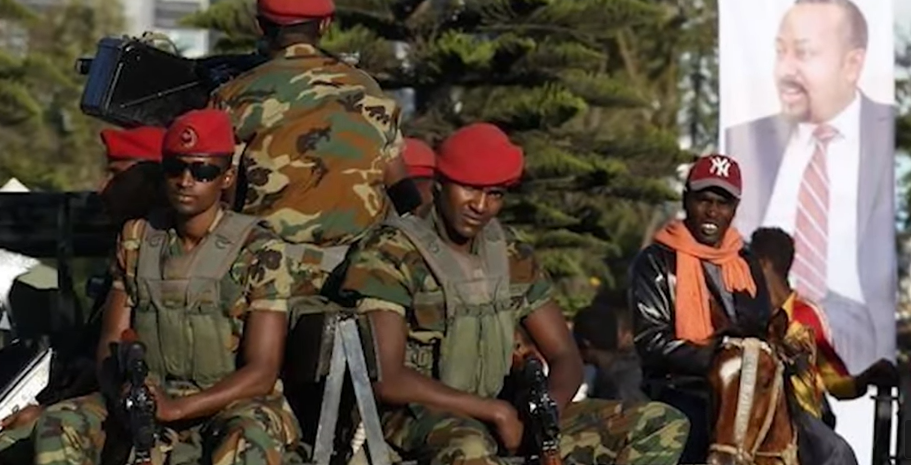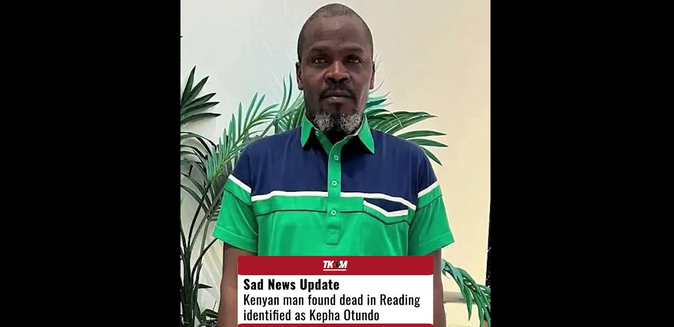By Human Rights Watch
Photos: YouTube Screenshots
(Nairobi) – The Ethiopian military summarily executed several dozen civilians and committed other war crimes on January 29, 2024, in the town of Merawi in Ethiopia’s northwestern Amhara region, Human Rights Watch said today. The incident was among the deadliest for civilians during the fighting between Ethiopian federal forces and Fano militia since the outbreak of fighting in Amhara in August 2023.

The United Nations and African Union should consider suspending new deployments of Ethiopian federal forces into international peacekeeping operations until commanders responsible for grave abuses are held accountable.
“The Ethiopian armed forces’ brutal killings of civilians in Amhara undercut government claims that it’s trying to bring law and order to the region,” said Laetitia Bader, deputy Africa director at Human Rights Watch. “Since fighting began between federal forces and the Fano militia, civilians are once again bearing the brunt of an abusive army operating with impunity.”
Early in the morning of January 29, Fano forces attacked a contingent of Ethiopian soldiers in Merawi, about 30 kilometers south of the Amhara regional capital, Bahir Dar. The Fano fighters then withdrew, leaving the town to the Ethiopian federal forces. During a six-hour period, Ethiopian soldiers shot civilians on the streets and during house-to-house searches. Scores were killed, mostly men, but also women. The soldiers also pillaged and destroyed civilian property.
On February 24, Ethiopian armed forces summarily executed up to eight civilians in Merawi following another attack by Fano fighters in the town.
Between February 9 and March 14, Human Rights Watch interviewed 20 people by phone, including victims, their family members, and witnesses. Human Rights Watch also analyzed and verified two videos posted to social media in the aftermath of the January 29 attack, and examined satellite imagery that corroborated witness accounts. On March 5, Human Rights Watch provided a summary of its preliminary findings to the Ethiopian government, but received no response.
On January 29, a 26-year-old woman was at home in Merawi with her husband and infant son when the fighting broke out. Once the battle ended, they peered out their door to see what was going on. “Three soldiers and two police officers came out of nowhere,” she said. “My husband was carrying our 2-month-old child. They told him to let our child go, and after he did, they shot him right outside the house. After they shot him, they did the same thing to the neighbor.”
Residents said soldiers looted homes, hotels, and businesses, and burned at least 12 Bajaj motorized three-wheel vehicles.

Human Rights Watch was unable to determine the total number of civilian deaths in Merawi. Community leaders shared two lists of victims with a total of forty names of people who were identified and buried in Merawi. Three residents estimated that over eighty people were killed, including some buried elsewhere.
Human Rights Watch verified and analyzed a video recorded on January 30 showing at least 22 bodies lining the main road in Merawi. Ethiopian forces refused to allow the community to collect the dead until later that morning.
The nongovernmental organization, the Ethiopian Human Rights Council, found that 89 civilians had been killed in Merawi. Initial findings by the national Ethiopian Human Rights Commission, a federal state body, concluded that Ethiopian forces killed 45 residents.
Under international humanitarian law applicable to the armed conflict in Amhara, the deliberate killing or mistreatment of civilians, and looting and pillage of civilian property are prohibited and may be prosecuted as war crimes.
An Ethiopian government spokesman told the media that Fano fighters attacked an army base in Merawi but maintained that the military only acted in “self-defense,” including when searching houses, and did not target civilians. Residents said that Ethiopian soldiers called a meeting on February 12 and only acknowledged that four civilians had been killed and that they burned one Bajaj.
Ethiopia’s international partners, including the United States, the European Union, and the United Kingdom, issued statements condemning the massacre of civilians and calling for an independent investigation. Since the end of the UN-mandated inquiry on Ethiopia in October 2023, there has been little international monitoring of the human rights situation in the country.
Concerned governments should press for resumed scrutiny of human rights in Ethiopia at the UN Human Rights Council, and call on the UN High Commissioner for Human Rights to urgently investigate and publicly report on abuses in Amhara, including in Merawi, and other conflict-affected areas, Human Rights Watch said. The EU should clarify that reengagement with Ethiopia is intended to result in concrete measures by Ethiopian authorities to prevent further abuses against civilians, including by allowing independent investigations into the Merawi killings, and holding those responsible for abuses to account. READ MORE…








